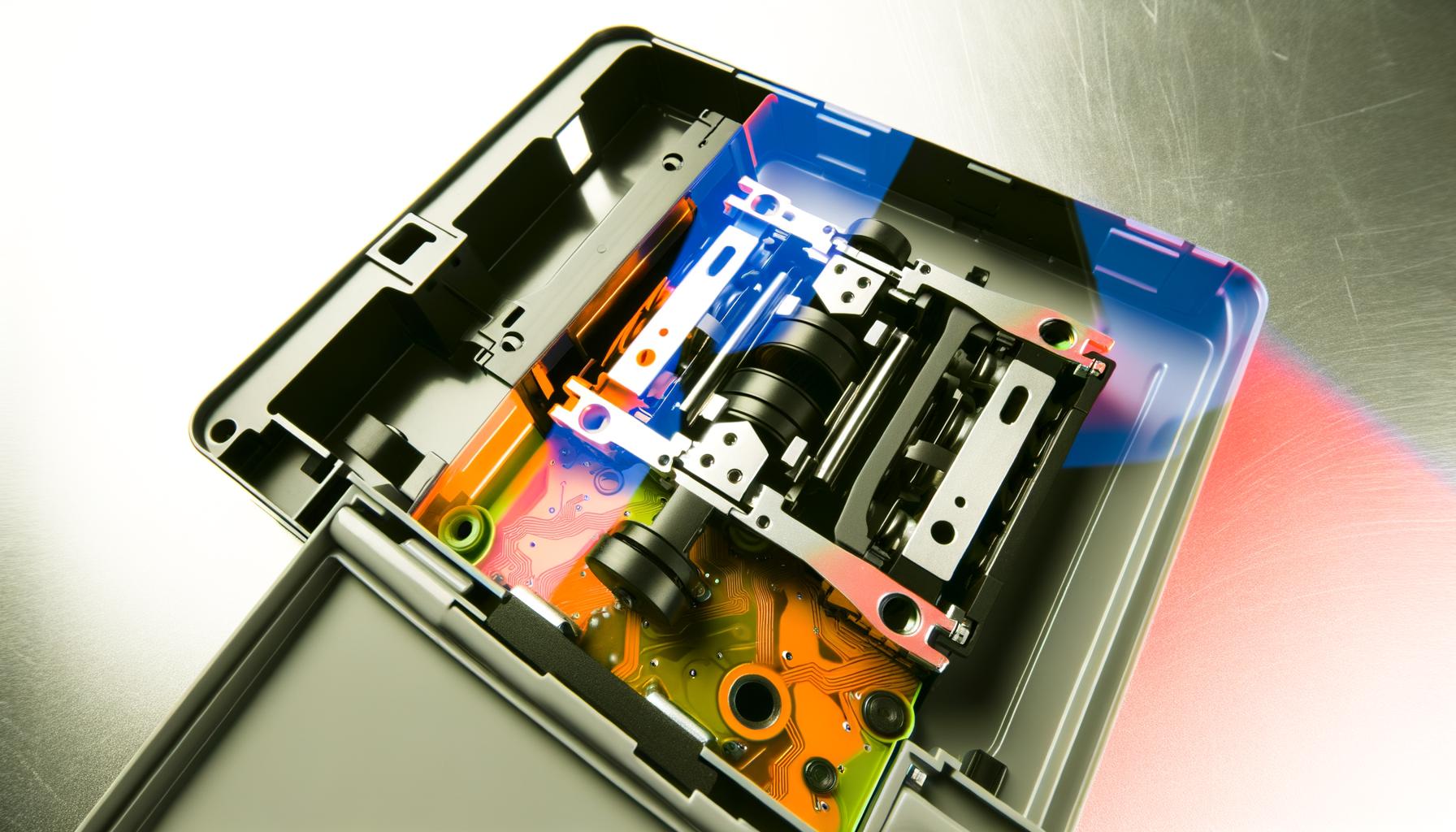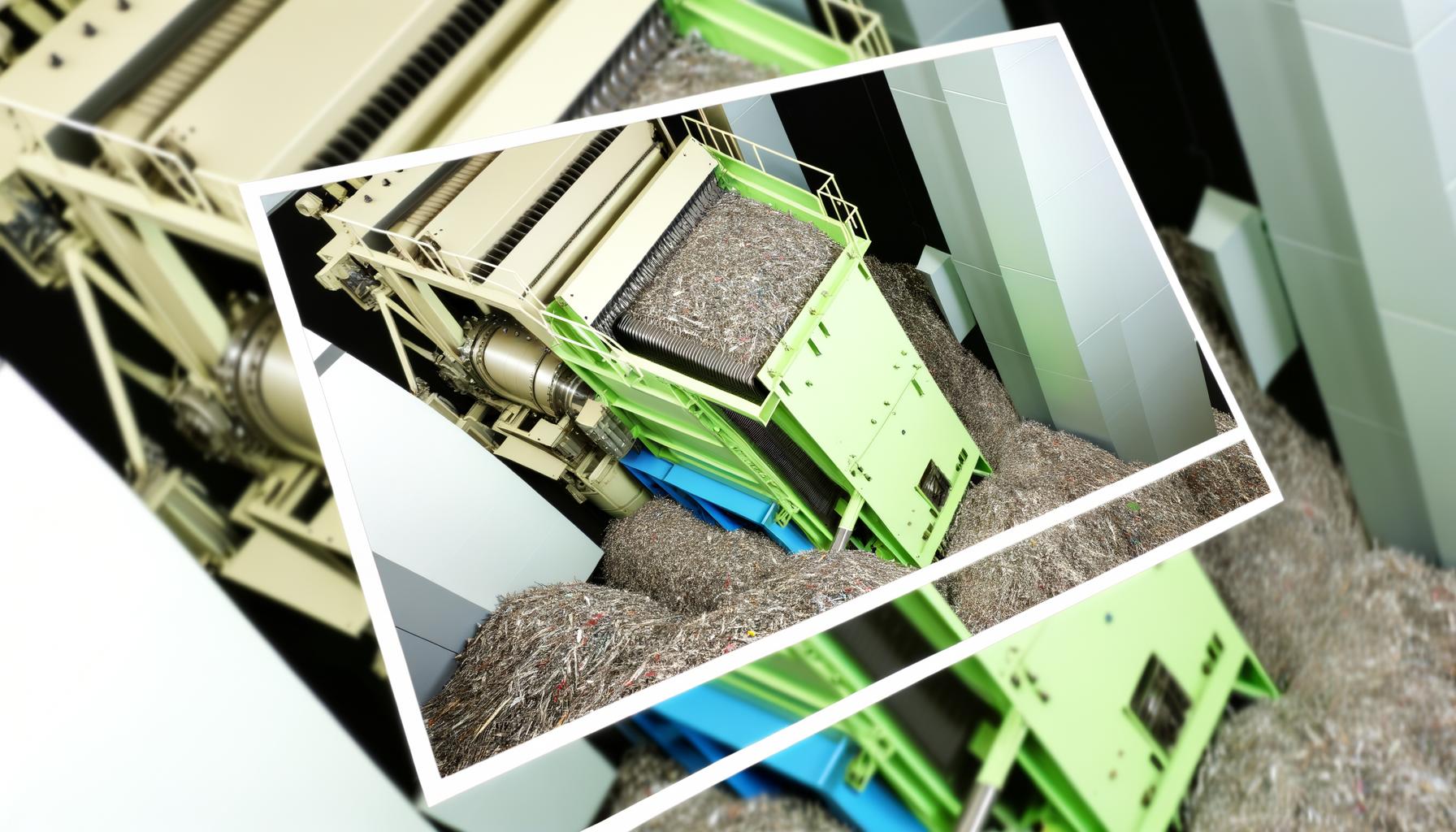In an era where data breaches are not just a possibility but rather an emerging certainty, the fear of sensitive information falling into the wrong hands leads businesses and individuals alike to seek secure data disposal methods. The consequences of insufficient hard drive destruction can be far-reaching-comprising legal issues, financial losses, and irreparable damage to one’s reputation.
It is within this climate of digital vulnerability that a professional hard drive destruction service emerges as a guardian of confidentiality, ensuring that your obsolete data is irrevocably destroyed.
The utility of these services cannot be understated. In contrast to basic file deletion or formatting-which merely remove pointers to the data without erasing the data itself-professional hard drive destruction provides a level of security that signals finality. By opting for such service, you gain access to specialized techniques and equipment designed specifically for comprehensive destruction that leaves no trace for potential information thieves.
Choosing the right hard drive destruction service is more than about ticking a compliance box; it’s about safeguarding your business’s legacy and trust. Beyond functional necessity, these services offer benefits including compliance with regulatory requirements, evidence elimination in situations demanding utmost discretion, and a pivotal role in end-of-lifecycle IT strategies.
With so much on the line, understanding what makes for an effective and reliable hard drive destruction service is critical-a conversation we begin by exploring its fundamental importance in today’s digital landscape.
Understanding the Need for Hard Drive Destruction
When it comes to securing sensitive information, completely erasing data from hard drives is a process often underestimated by businesses and individuals alike. Many might think that simply deleting files or reformatting a drive is sufficient; however, data remnants can still remain on the storage medium.
These remnants can be accessed with specialized software, putting confidential information at risk of being recovered by unauthorized parties. It’s this possibility that underscores the paramount importance of utilizing a professional hard drive destruction service.
The potential ramifications of data breaches shouldn’t be taken lightly. When private information falls into the wrong hands, it can lead to identity theft, financial fraud, and an array of other crimes. In addition to these personal dangers, businesses face severe consequences-both legally and reputably.
Breach of customer data might result in costly legal action and incur fines based on privacy laws like GDPR or HIPAA compliance violations. Additionally, the resulting damage to a company’s reputation may take years to repair and could potentially ruin consumer trust entirely.
Here are some scenarios where proper hard drive destruction becomes particularly critical:
- E-commerce: Online retailers store vast amounts of customer data including credit card details, addresses, and purchase history.
- Healthcare: Hospitals and clinics possess sensitive patient records that require secure handling as per health privacy laws.
- Legal Firms: Confidential case files and personal client details demand protection from exposure.
- Financial Institutions: Banks compile significant personal financial records that need strict safeguarding measures.
In essence, any sector dealing with confidential data offers a context where secure disposal through a professional hard drive destruction service isn’t just beneficial-it’s essential to uphold security protocols and ethical responsibility.
What to Look for in a Hard Drive Destruction Service
When choosing a hard drive destruction service, the first and most crucial factor to consider is their adherence to industry standards and certifications. Services that are NAID (National Association for Information Destruction) certified have been audited by a third party to assess and verify their compliance with data destruction industry standards.
This accreditation is not just a badge of honor; it signifies commitment to best practices in terms of securing proprietary or sensitive data throughout the destruction process. Since NAID certification is often recognized globally, it sets a baseline for reliability and trustworthiness regardless of where your business operates.
Moreover, it’s essential to understand the various methods these services utilize to destroy hard drives completely. Common techniques include shredding, where drives are physically shredded into small particles; degaussing, which involves using a high-powered magnet to erase the data stored on the magnetic media of the drive; and crushing or drilling, which physically breaks the drive making it unreadable.
Each method comes with different levels of security – for instance, shredding can provide one of the highest levels since it turns drives into tiny fragments that are nearly impossible to piece back together. When evaluating providers, ask about their equipment and capabilities to ensure they meet your security needs.
Finally yet importantly, a chain of custody is another vital component during the destruction process. Reputable hard drive destruction services will provide documentation that records every step from receiving your drives to their final disposition – this includes providing secure transportation options from your site to theirs if off-site destruction is chosen.
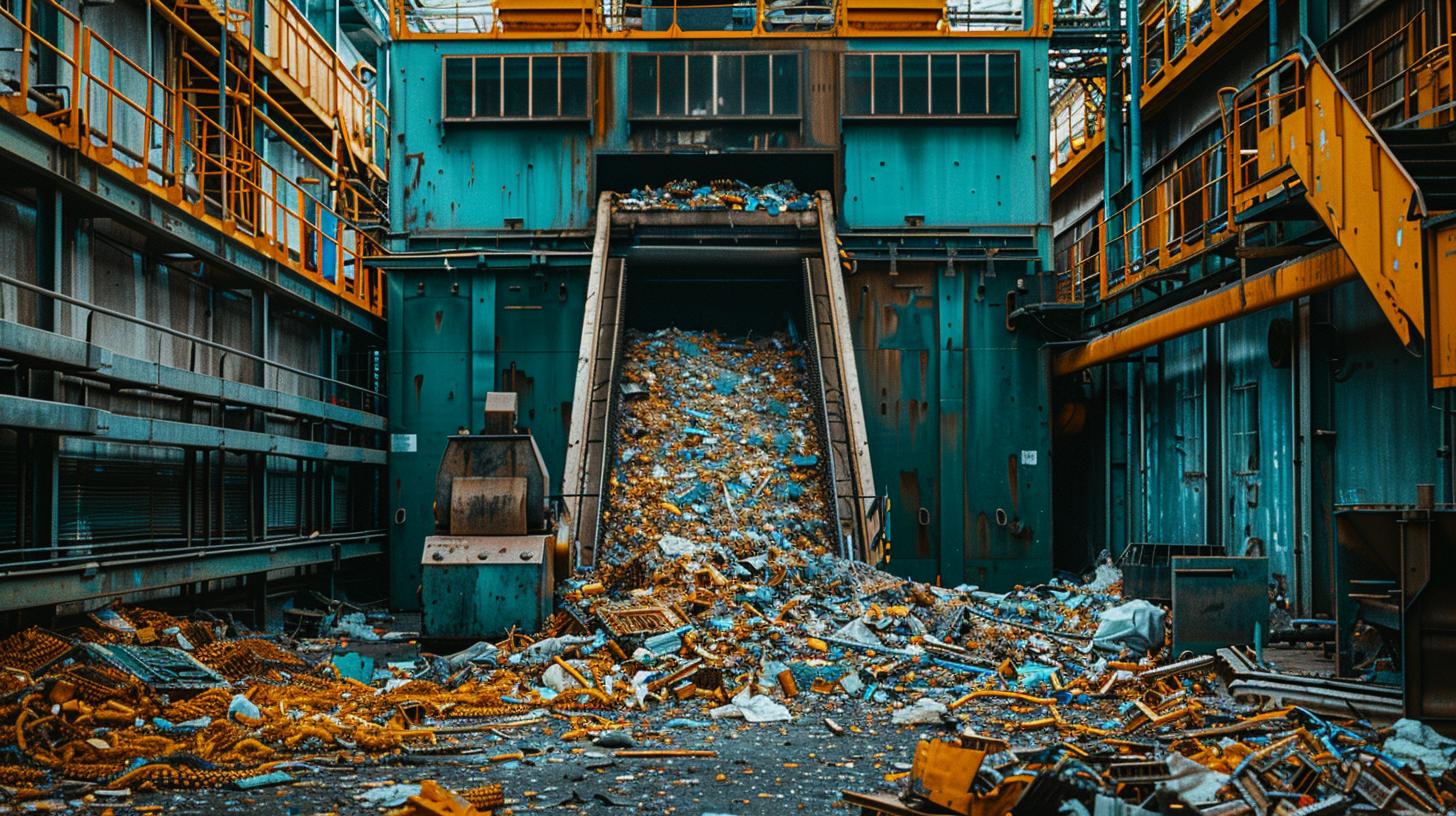
This type of transparency not only ensures accountability but also provides you with legal proof that your sensitive data has been handled correctly and destroyed according to regulatory requirements.
| Destruction Method | Security Level |
|---|---|
| Shredding | High – Materials are rendered into very small pieces |
| Degaussing | Medium – Demagnetizes disk but physical remains intact |
| Crushing/Drilling | Medium-High – Drives are broken into larger parts compared to shredding |
Choosing a credible hard drive destruction service isn’t straightforward due diligence – it’s very much part of maintaining your company’s integrity in handling confidential information securely.
On-Site vs Off-Site Destruction
When it comes to protecting sensitive data, businesses must carefully consider the method of hard drive destruction they choose. On-site and off-site destruction are two primary options, each with distinct advantages and trade-offs.
On-site (mobile) destruction involves a hard drive destruction service coming directly to your business location to physically destroy the drives. It can offer a higher level of security since you have the opportunity to witness the destruction process in person, which eliminates the risk of data being intercepted en route to an off-site facility.
However, on-site hard drive destruction might be more expensive than its off-site counterpart, owing to the convenience and immediacy of the service provided. It requires specialized mobile equipment that can physically destroy hard drives securely-such as shredders or degaussers-that must be transported to your premises. For organizations requiring immediate documentation that their drives have been destroyed before their very eyes, this option often proves invaluable despite any additional costs.
Conversely, off-site (plant-based) destruction means taking or sending your hard drives to a dedicated facility where they will be destroyed. This option can be less costly because these facilities often handle larger volumes of devices and benefit from economies of scale.
The challenge with off-site services is ensuring that your drives are securely transported without any chance for unauthorized access to your data prior to destruction. It’s critical for businesses opting for off-site services to investigate how their potential provider handles transportation security and what measures are in place once devices arrive at the plant.
| On-Site Destruction | Off-Site Destruction |
|---|---|
| Direct witnessing of destruction | Usually less expensive due to volume processing |
| Typically more costly due to mobile service | Requires secure transportation methods |
| Immediate physical verification | Destruction occurs at a centralized location |
Whether on-site or off-site, evaluating each option against your company’s specific needs is essential. Factors such as budget constraints, regulatory requirements, volume and frequency of drive disposal should direct the decision-making process. For instance, larger companies that regularly need mass drive destruction may find ongoing offshore partnerships cost-effective over time while smaller enterprises dealing with highly-sensitive information might prioritize witnessing hard drive disposal personally through on-site services for enhanced peace of mind.
In summary, both on – and off-site options provide secure means of destroying digital media; however, balancing your organization’s particular needs with these methods’ benefits will ensure you make an informed choice that safeguards your data effectively.
The Role of Environmental Responsibility in Hard Drive Destruction
Environmental Impacts of Hard Drive Disposal
When discarding old hard drives, it is crucial to consider not only data security but also the environmental impact. Traditional methods of disposal can result in harmful chemicals and metals leaching into the soil and water sources, contributing to pollution and adverse health effects. An environmentally responsible hard drive destruction service recognizes the balance between secure data elimination and sustainable practices.
Such services should ensure that once a hard drive’s digital life ends, its physical components do not cause harm to the environment. Environmentally conscious providers will follow strict guidelines for e-waste recycling, ensuring that all recyclable parts are reclaimed and any hazardous materials are disposed of properly.
E-Waste Recycling and Secure Data Management
An integral component of an eco-friendly hard drive destruction service is a robust e-waste recycling program. A responsible service provider dismantles destroyed hard drives and salvages valuable materials such as aluminum, copper, gold, and other metals that can be recycled without compromising data security.
This practice reduces the demand for new raw materials while diminishing the environmental footprint associated with mining activities. Furthermore, these services should transparently communicate their recycling policies including compliance with relevant e-waste legislation such as the Resource Conservation and Recovery Act (RCRA) or local regulations that govern the proper management of electronic waste.
Selecting a Sustainable Hard Drive Destruction Partner
Choosing an environmentally responsible hard drive destruction service creates a positive ripple effect beyond safeguarding sensitive information-it demonstrates a commitment to corporate social responsibility. Businesses should look for service providers advertising a no-landfill policy or certification by recognized environmental stewardship organizations.
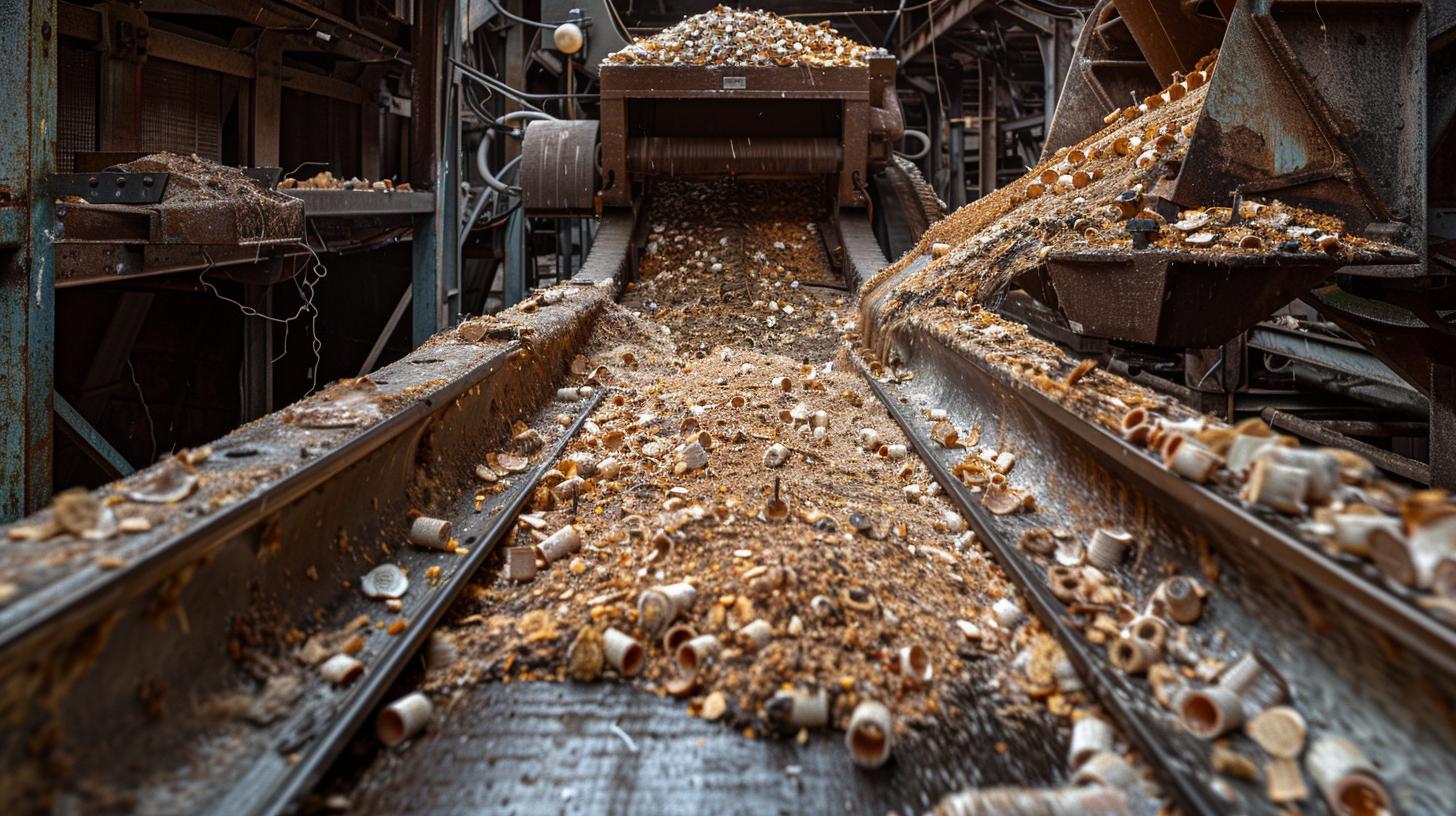
The benefits extend both ways; clients not only align themselves with sustainability goals but also convey their values to customers who increasingly favor eco-conscious companies. It becomes paramount to work with a hard drive destruction service that pairs ironclad data protection methods with stringent environmental practices-showcasing an awareness that secure disposal means considering the impact on our planet just as much as protecting personal or proprietary data.
Red Flags to Avoid When Selecting a Hard Drive Destruction Service
When investing in the security of sensitive data, it’s paramount to be able to distinguish reliable hard drive destruction services from those that could pose risks. By being aware of certain red flags, you can avoid entrusting your data to a service that may not adhere to industry standards or fails to provide the necessary safeguards.
Lack of Certification and Standards Compliance
Certifications are one way to gauge if a hard drive destruction service adheres to strict industry practices. For instance, the National Association for Information Destruction (NAID) offers certificates to providers complying with their high standards. A lack of such certifications should be a warning sign; if a provider cannot prove its compliance with NAID or other regulatory standards, this might indicate inadequate security measures and the potential for compromising your data’s confidentiality.
Moreover, certification is not just about having a piece of paper; it involves regular audits and maintaining standard operating procedures that ensure every hard drive is destroyed competently. Without these assurances, the service may not be fully effective at protecting against data breaches. It’s essential for customers to verify the legitimacy and continuity of any claimed certifications before committing to a service.
Vague or Non-Existent Processes
Transparency in a hard drive destruction service’s process is crucial. When selecting a provider, make sure they clearly explain how they handle hard drives from pickup through destruction. The presence of ambiguity in their methods could signify ineffective or unsecure handling which may lead to data recovery by unauthorized parties.
Furthermore, without clear documentation detailing the destruction process and chain-of-custody records available upon request – there lies an increased risk. Without proper documentation tracking the disposal process of each device, clients have no verifiable assurance that their information has been securely dealt with from start-to-finish.
Poor Customer Reviews and Lack of References
The experiences shared by past customers can provide valuable insights into the reliability and efficiency of a hard drive destruction service. Be wary if all you encounter are negative reviews pointing towards issues like missed pickups, poor customer service or even loss of confidential information during processing-these are significant indications that something is amiss.
Likewise, any reputable vendor should be willing to provide references upon request so potential clients can verify their track record directly with other businesses who have used their services. An unwillingness or hesitation from the provider when asked for testimonials should raise doubts about their credibility.
Making the Decision
When you’re in the process of selecting a hard drive destruction service for your business, it’s essential to meticulously scrutinize each potential vendor to ensure they are capable of meeting your specific needs. Start by determining what type of drives you need destroyed and asking the service how they handle different technologies, including SSDs, HDDs, and any other storage devices you use.
As technology evolves rapidly, make sure the service adapts to new storage forms and has effective processes in place for each.
Additionally, inquire about their emergency response time. In situations where security breaches or urgent data destruction is required, how quickly can they respond? Their answer will provide insight into their reliability and efficiency when emergencies arise.
Moreover, compliance with data destruction laws should be at the forefront of your dialogue with any potential hard drive destruction provider. Regulatory frameworks such as HIPAA for healthcare information, GDPR for personal data protection within Europe (and its international implications), or industry-specific guidelines must be strictly followed to avoid substantial fines and legal consequences.
A trustworthy service will not only understand these regulations but will also have procedures explicitly tailored to meet these standards. Ask about certifications like NAID AAA which demonstrate that a vendor meets high security and operational benchmarks.
Finally, a careful evaluation should extend beyond just technical capabilities and legal compliance. Consider long-term partnerships rather than viewing hard drive destruction as a one-off task; this approach fosters a deeper understanding between your organization and the service provider.
Evaluate their customer support structures, transparency of processes, additional services such as on-site data wiping or hard drive serialization, and look for testimonials from clients similar in size or industry to your business.
Armed with this checklist of considerations-covering drive type adaptability, promptness in emergency situations, regulatory adherence, certification status, transparency practices-and thorough research on each prospective company’s track record and reputation can guide you toward choosing the most suitable hard drive destruction service to ensure ongoing security management for your sensitive data.
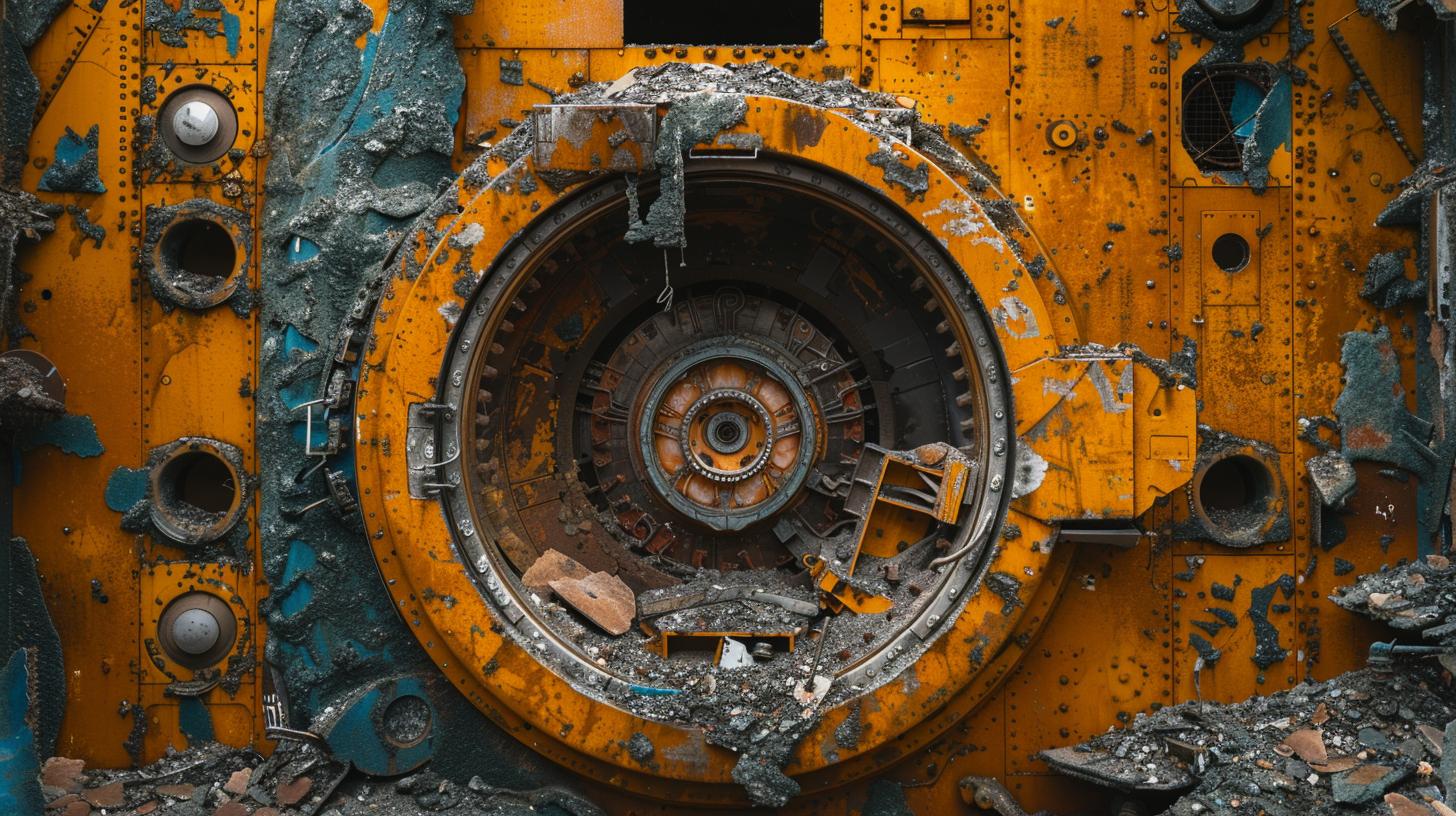
Conclusion
In conclusion, the importance of secure data disposal cannot be overstated. Properly destroyed hard drives are a cornerstone of good information security practices and play a vital role in protecting both personal and business data from falling into the wrong hands. The risks associated with improper destruction, such as identity theft, corporate espionage, and legal sanctions, lend urgency to the need for employing reliable methods that go beyond simple file deletion or drive formatting.
Choosing the right hard drive destruction service is about more than just getting rid of unwanted hardware; it’s about safeguarding your company’s future. Therefore, it is essential to consider all facets-from certification and destruction methods to chain of custody documentation and environmental responsibility-when selecting a service provider.
These providers offer enhanced security by meeting stringent industry standards and providing verifiable proof of secure data disposal. By addressing these criteria critically, businesses can significantly mitigate the risk of costly data breaches.
Finally, whether you’re involved with e-commerce, healthcare, legal sectors or any industry handling sensitive data, don’t take chances with half measures. Act proactively by reaching out to a reputable hard drive destruction service that will not only comply with all necessary regulations but also offer peace of mind that your confidential information has been irrevocably destroyed.
Your obligation to protect sensitive data doesn’t end when you’re ready to discard old equipment; it includes ensuring its safe and sustainable disposal through reliable services dedicated to meeting those needs.
Frequently Asked Questions
What Is Hard Drive Destruction?
Hard drive destruction refers to the process of destroying a hard drive to render the data stored on it unrecoverable. This can be done for security reasons, ensuring that sensitive or proprietary information cannot be accessed by unauthorized individuals after the device’s disposal.
The destruction can involve physical, mechanical, or electronic methods to damage the hard drive’s platters and other components so thoroughly that no part of it remains functional or salvageable for data extraction.
Does Removing the Hard Drive Remove All Data?
Removing the hard drive from a device does eliminate the risk of data being accessed through that particular machine; however, the data itself remains intact on the hard drive unless it is overwritten or physically destroyed.
Simply removing a hard drive doesn’t erase its contents, and without proper sanitization or destruction, another person could potentially recover and access the stored data if they gain possession of this hardware.
What Is the Standard for Hard Drive Destruction?
The National Institute of Standards and Technology (NIST) provides guidelines for media sanitization in Special Publication 800-88, which encompasses hard drive destruction. The standard calls for procedures like clearing, purging (overwriting), or physical destruction to ensure data is irretrievable.
Physical destruction might include shredding, crushing, disintegration, or incineration of the hard drives according to specific industry regulations and environmental considerations.
Can a Destroyed Hard Drive Be Recovered?
Once a hard drive has been properly destroyed following stringent procedures, recovery of its data should be virtually impossible.
If the drive’s platters—which store all of the information—are shattered, warped, burned, or otherwise rendered unreadable through thorough physical processes such as degaussing (demagnetizing), recovery efforts would not succeed because there is no legible information left on them from which to reconstruct data.
Does Staples Destroy Hard Drives?
Staples offers services that include secure shredding and electronic recycling which may sometimes encapsulate destroying old electronic devices including hard drives. Their services are typically designed to comply with privacy laws and help prevent potential information theft by ensuring customer data is safely destroyed before equipment is recycled.
Why Do People Destroy Hard Drives?
People destroy their hard drives for various reasons but primarily due to concerns about privacy and security breaches that could arise from inappropriate acquisition and misuse of sensitive data contained within these storage devices once they’re discarded or sold.
Given increasing threats posed by identity theft and corporate espionage as well as legal requirements like HIPAA for healthcare providers and GDPR for EU citizens’ personal information protection—they ensure compliance with these laws and protect against such risks by destroying old drives.
What Are Acceptable Methods of Hard Drive Destruction?
Acceptable methods of hard drive destruction depend on regulatory compliance requirements but generally include physical means such as shredding into small particles (smaller than 2mm x 2mm), incineration in a licensed facility which burns drives into ash under high temperature guidance, pulverizing using machinery that crushes them beyond recognition or functionality, degaussing where powerful magnets are used to scramble any magnetic fields containing data rendering them unreadable along with chemical treatments causing irreversible damage.
Can a Destroyed Hard Drive Be Read?
A destroyed hard drive cannot be read if it has been thoroughly dismantled per recognized standards since all traditional means of reading stored information rely upon functional disks devoid of severe structural flawlessness deterioration allowing accessing yielding readable elements fulfilled intact pathways; therefore when correctly executed effective devastating hindrances through methodologies conclusively terminates capabilities whereas foreclosed likelihood operational restoration furthermore prohibiting ascertainability recovered insights respectively unveils composed specifications engendered state conditions therein binaries remain inaccessible pursuant irrevocably altered juxtapositions characteristic domains extinguishing prevailing retention mechanisms consequently vitiate prospects retrieval conclusively.



